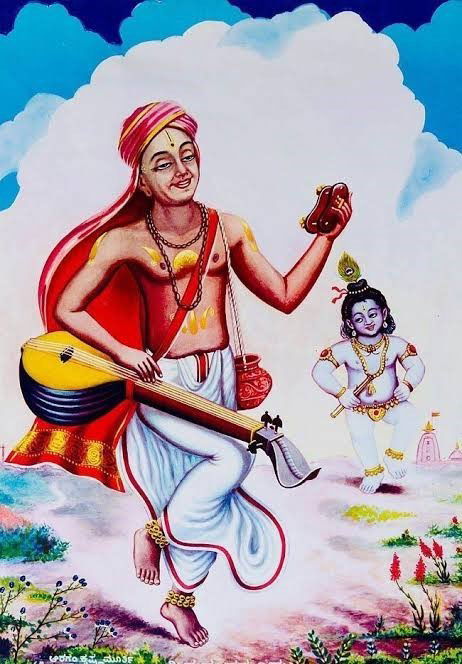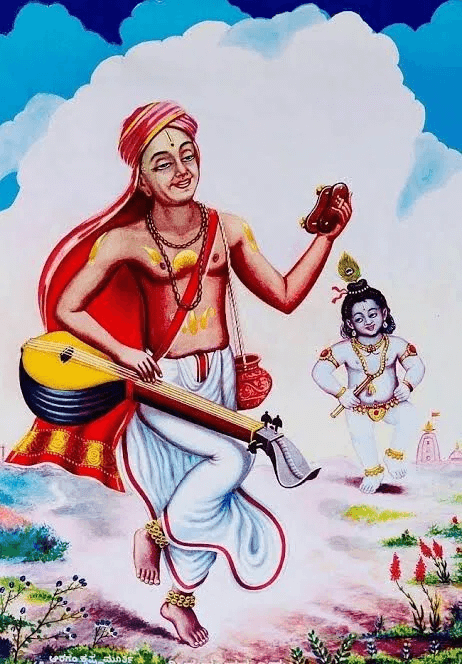Purandara Dasa

Department of Archaeology, Heritage and Museums will soon commence field research work at Keshavapura in Araga Gram Panchayat (GP) of Tirthahalli taluk to explore definitive archaeological evidences that may put an end to speculations regarding the birthplace of Purandara Dasa.
What’s the issue?
There is much speculation about where Purandara Dasa, regarded as the pitamaha of Carnatic music, was born.
An expert committee was constituted by Kannada University, Hampi. It had come to the conclusion that it was most likely a small village called Kshemapura (now called Keshavapura) at Araga hobli in Tirthahalli taluk of Shivamogga district in Karnataka. The committee found enough evidence to believe this place, which was a major province of the Vijayanagara empire, was the birthplace of the saint.
But, some have been arguing that the saint-poet was born in Purandaragadh, near Pune in Maharashtra, and finally settled in Hampi.
About Purandaradasa:
Purandara Dasa (1484–1564) was a Haridasa, great devotee of Lord Krishna and a saint.
He was a disciple of the celebrated Madhwa philosopher-saint Vyasatirtha, and a contemporary of yet another great Haridasa, Kanakadasa.
Purandaradasa was the pioneer who blended the rich musical streams, namely the Dravidian and Aryan music, into a single stream known as Carnatic music.
Prior to his initiation to Haridasa tradition, Purandara Dasa was a rich merchant and was called as Srinivasa Nayaka.
Contributions to Indian Music:
- He formulated the basic lessons of teaching Carnatic music by structuring graded exercises known as Svaravalis and Alankaras
- He introduced the raga Mayamalavagowla as the first scale to be learnt by beginners in the field – a practice that is still followed today.
- He also composed Gitas (simple songs) for novice students.
- He is noted for composing Dasa Sahithya, as a Bhakti movement vocalist, and a music scholar.

Social reforms:
- Purandara Dasa tried to reform existing practices in the society, and preached to others in the local language, Kannada by singing devotional songs. Most of his keertanas deals with social reform and pinpoints defects found in the society.
- It teaches complete self-surrender and unadulterated love towards Lord Krishna, the Supreme.
- The philosophy of Bhakti in Purandara Dasa’s compositions stems from the essential teachings of the realistic-pluralistic Madhwa Philosophy of Vaishnavism.
- Purandara Dasa fought the evils of casteism through his songs. In his song aavakulavaadarenu aavanadarenu aatma bhavavariyada mele he wonders what is the use if one does not understand the spirit of humanism whatever caste or status one might be accredited to.
- According to Purandara Dasa there were no inequalities among men and women. Both of them had same rights and obligations in their conduct of everyday life as well as observation of pity.
- He made some forceful expressions on untouchability, which was dogging society.

